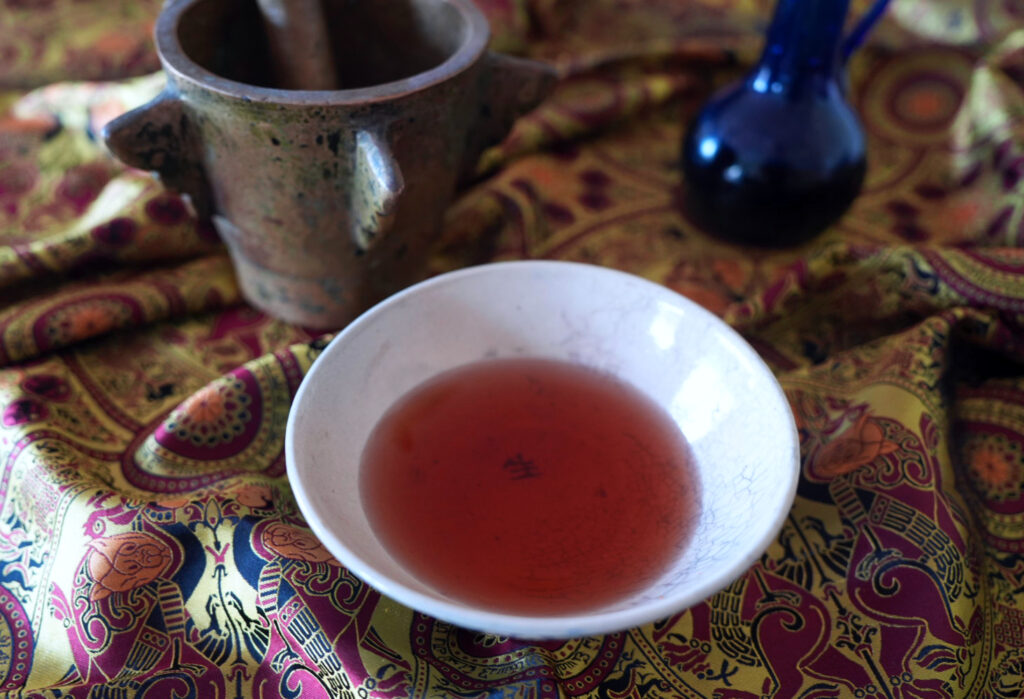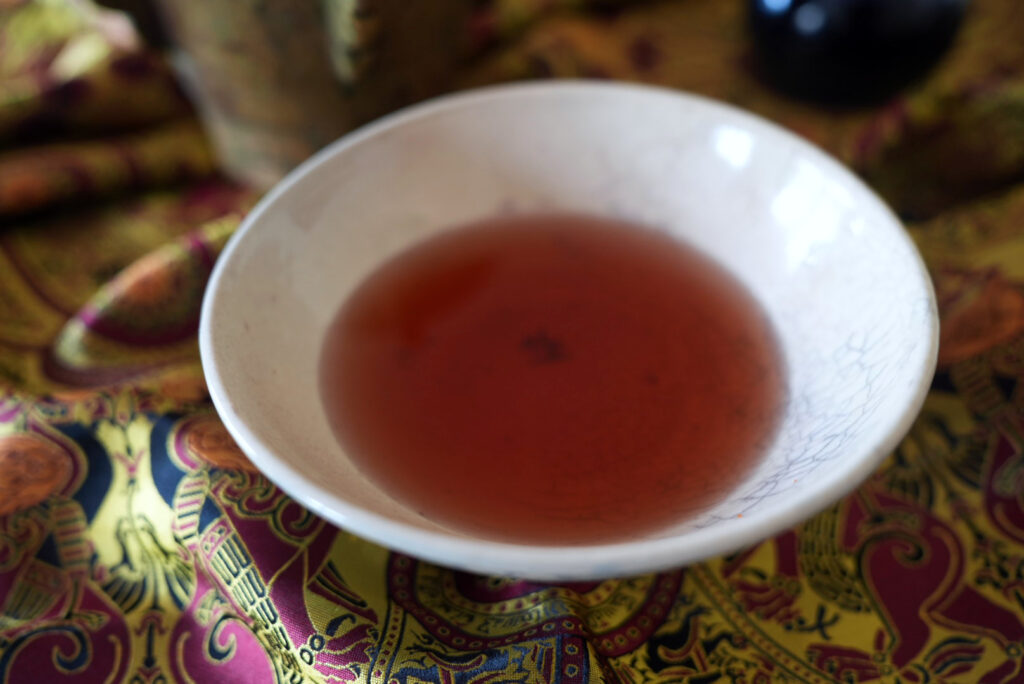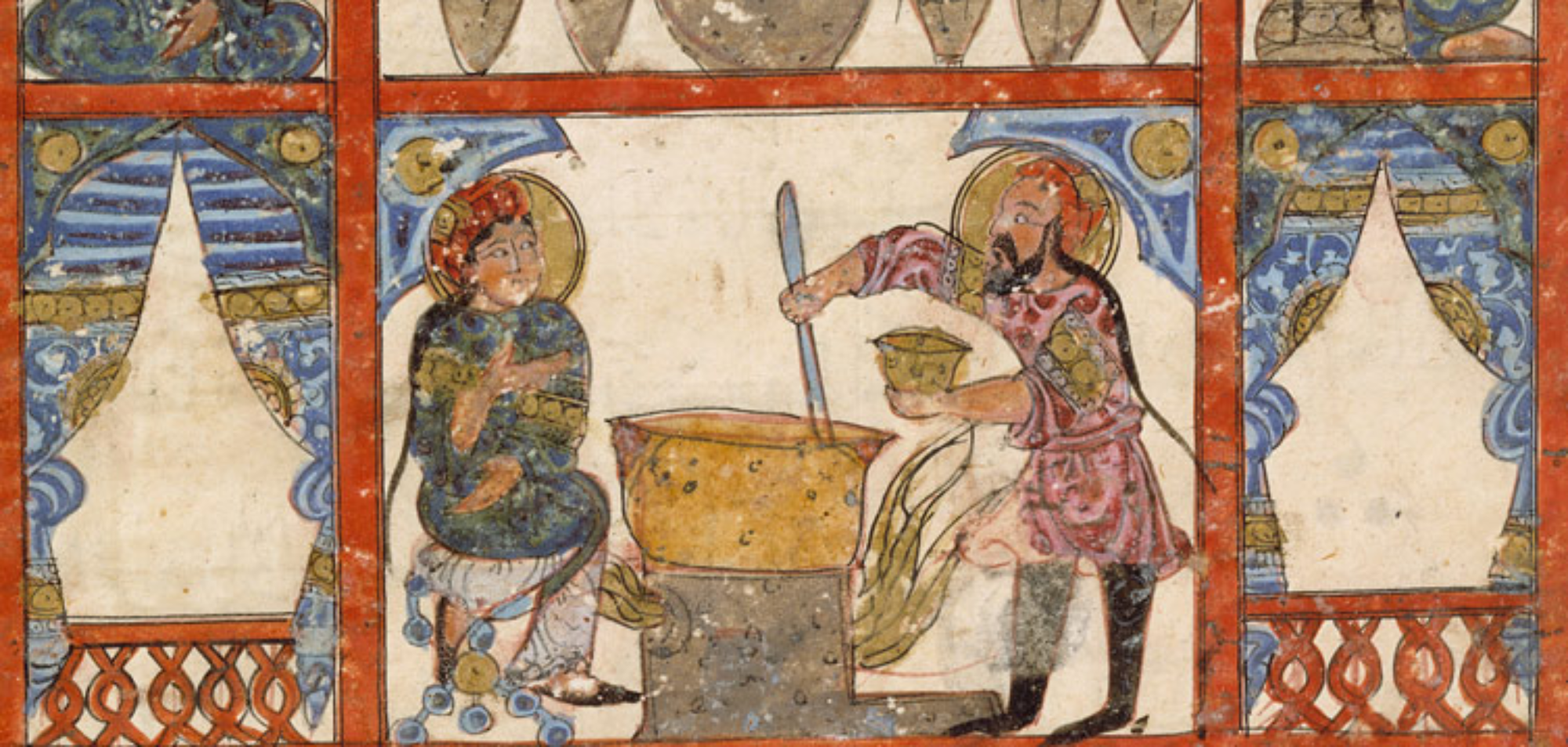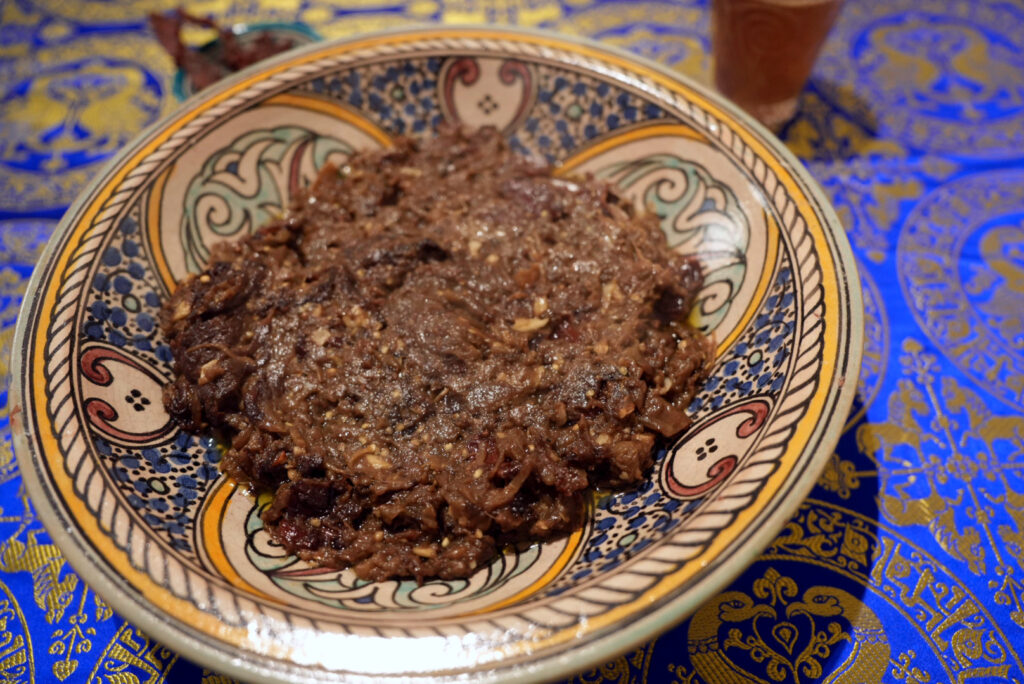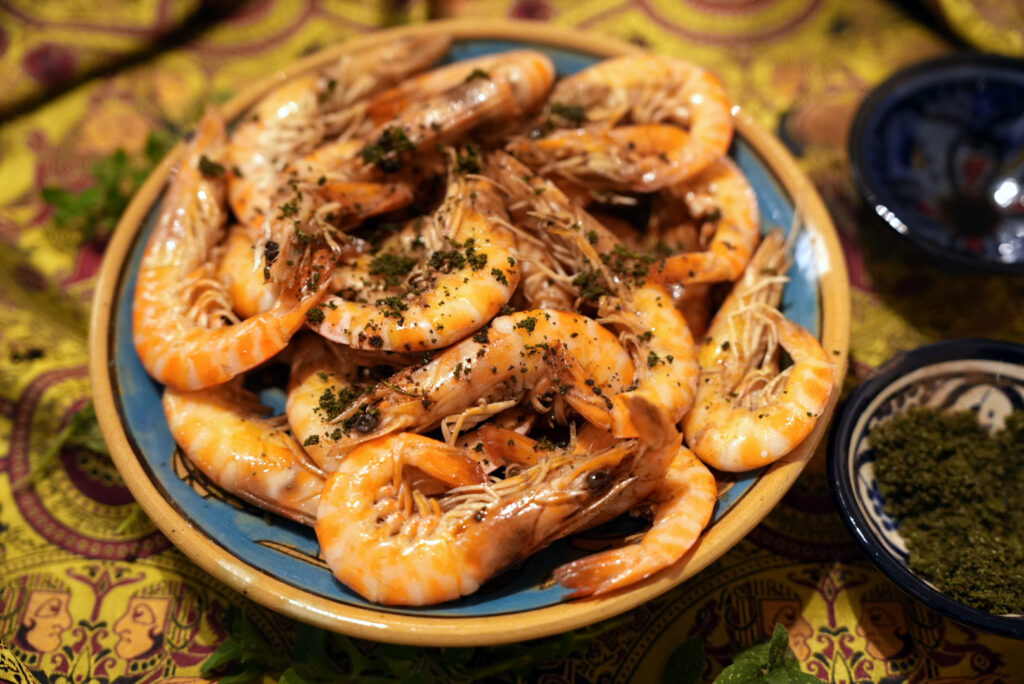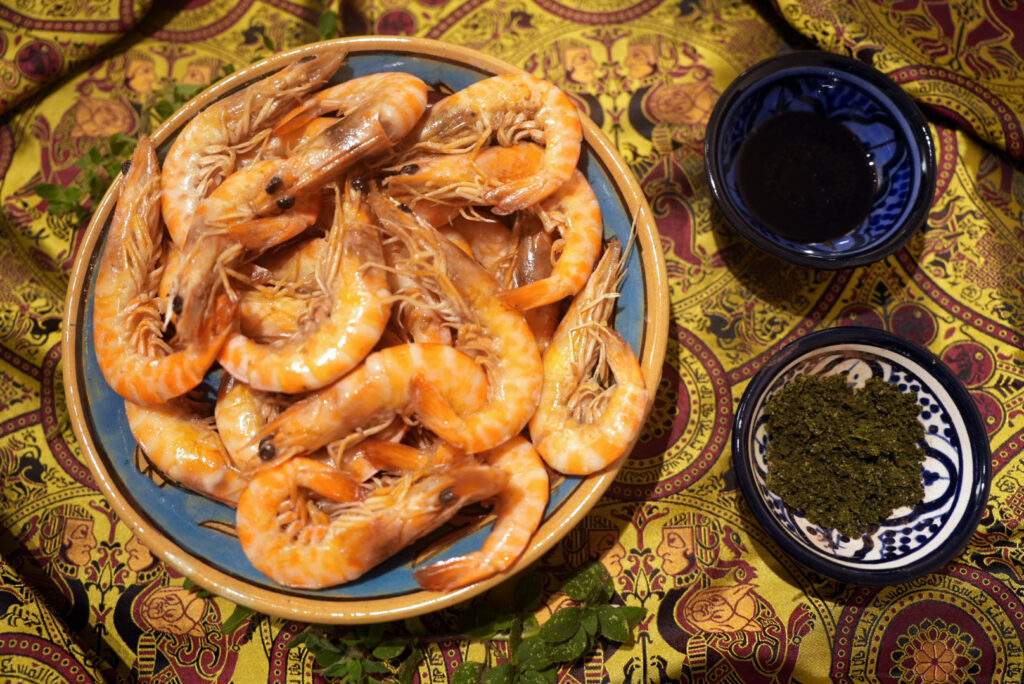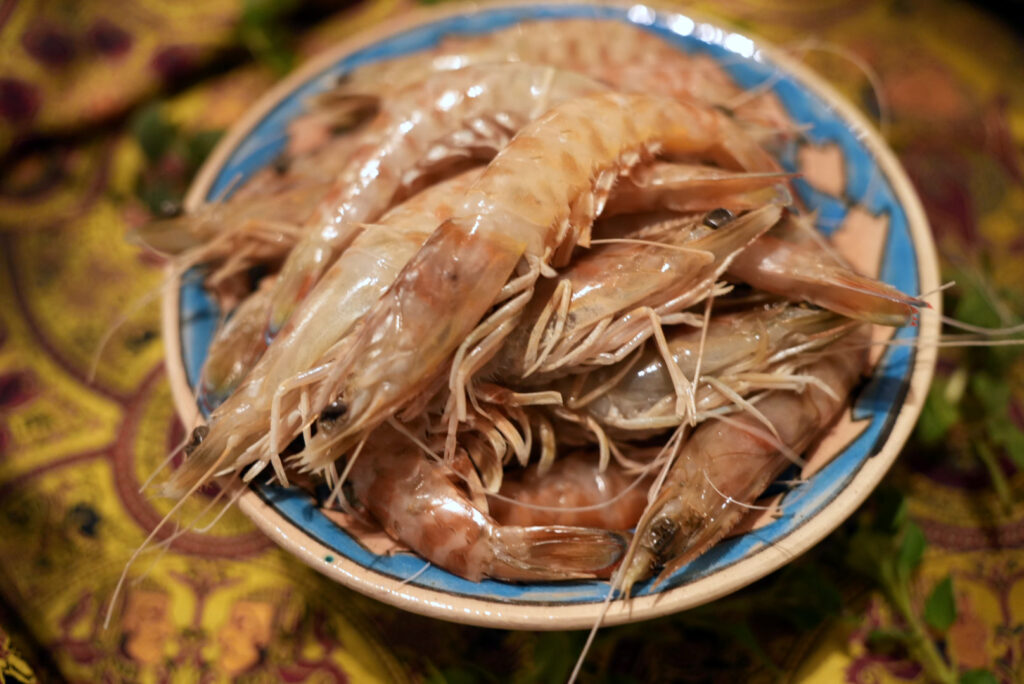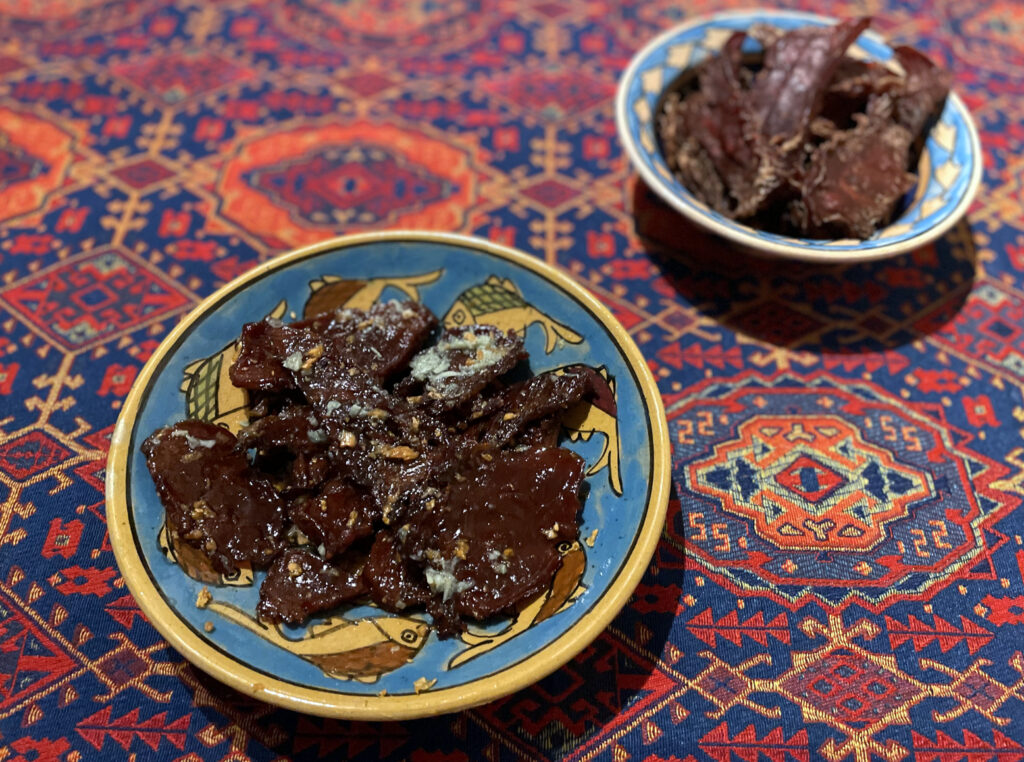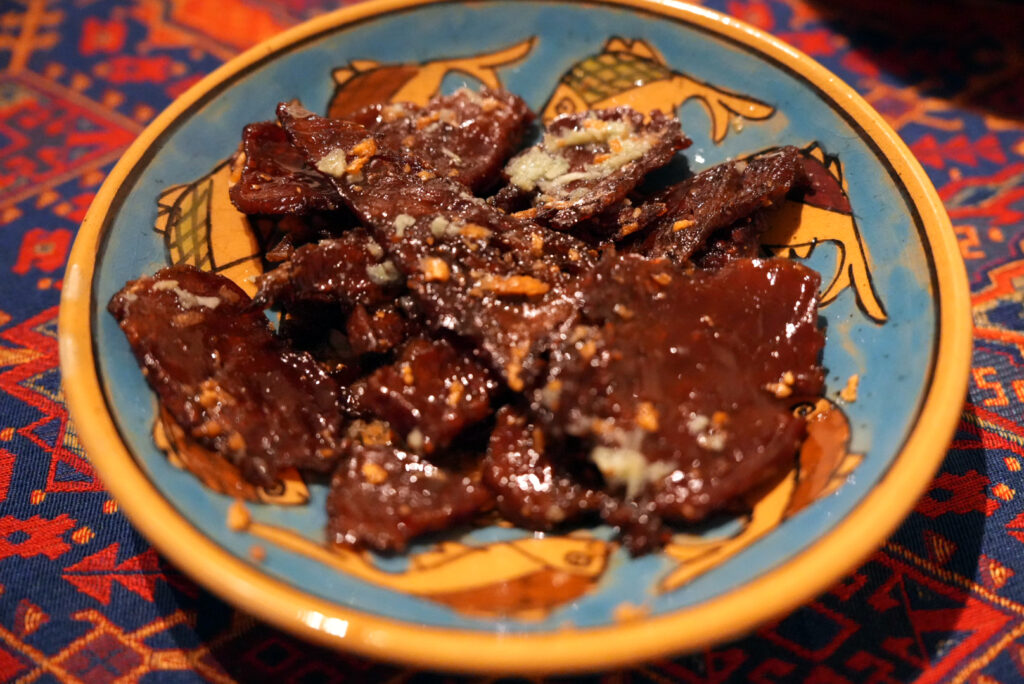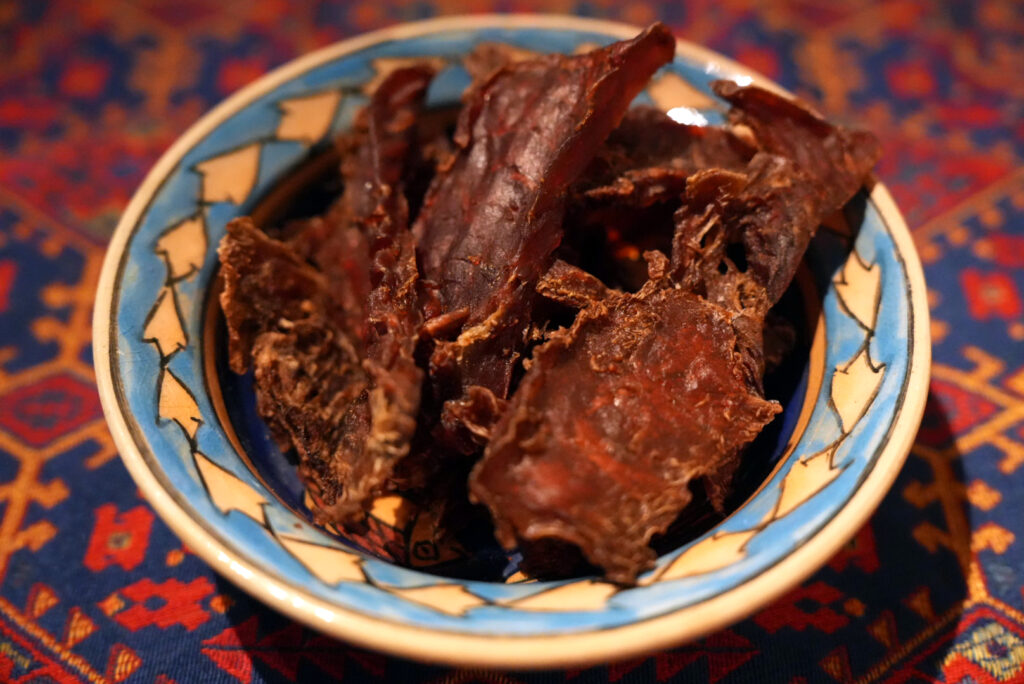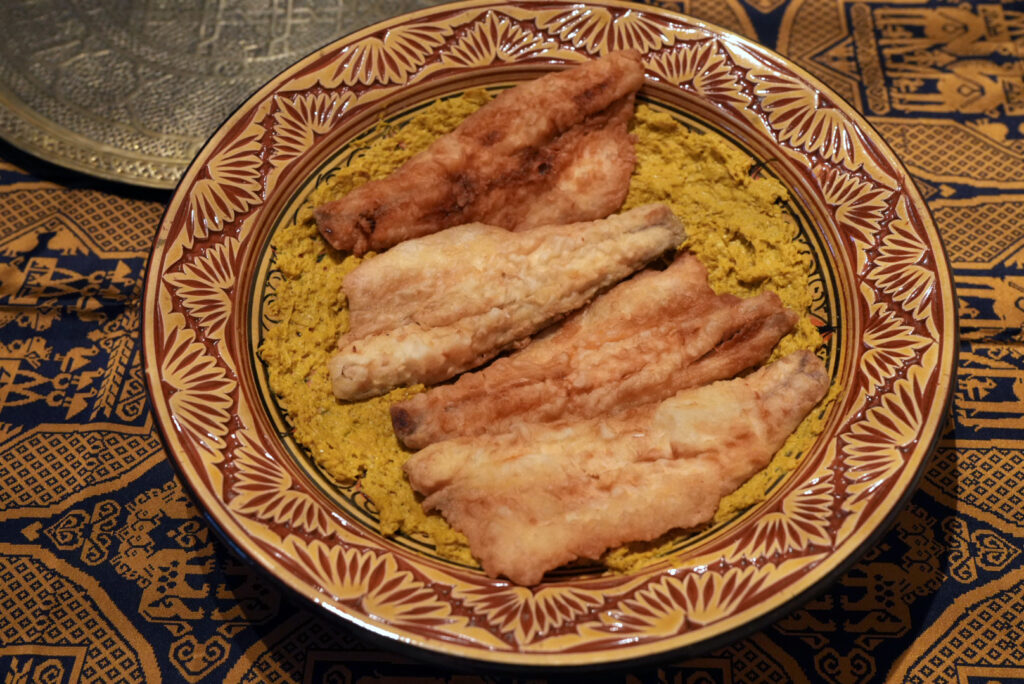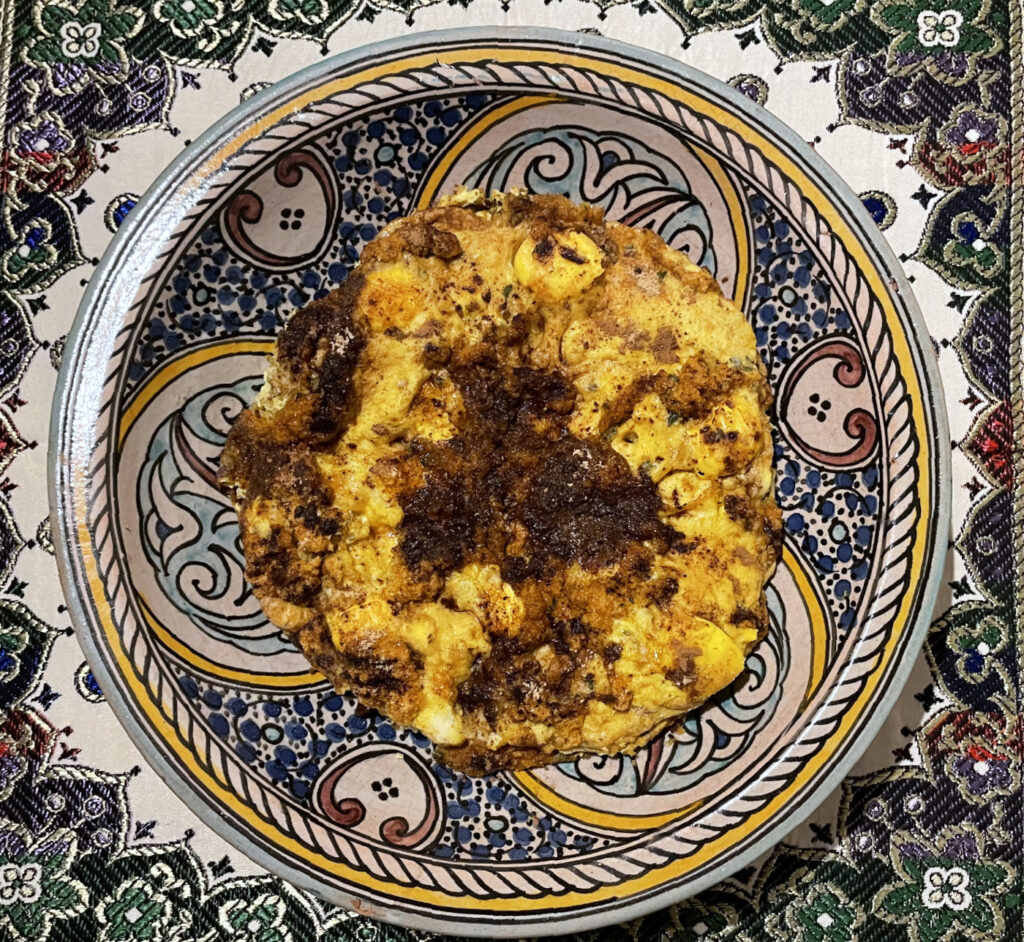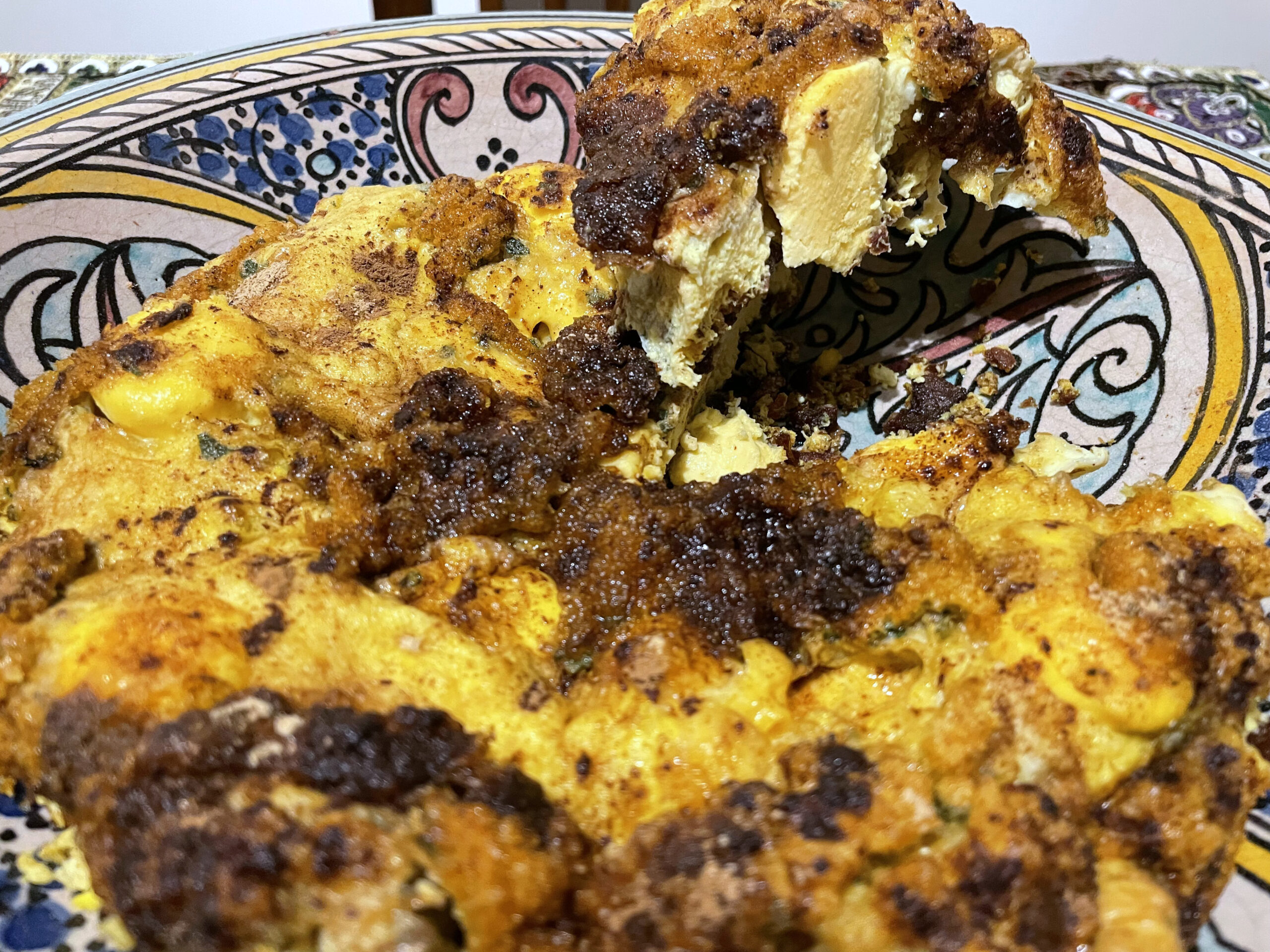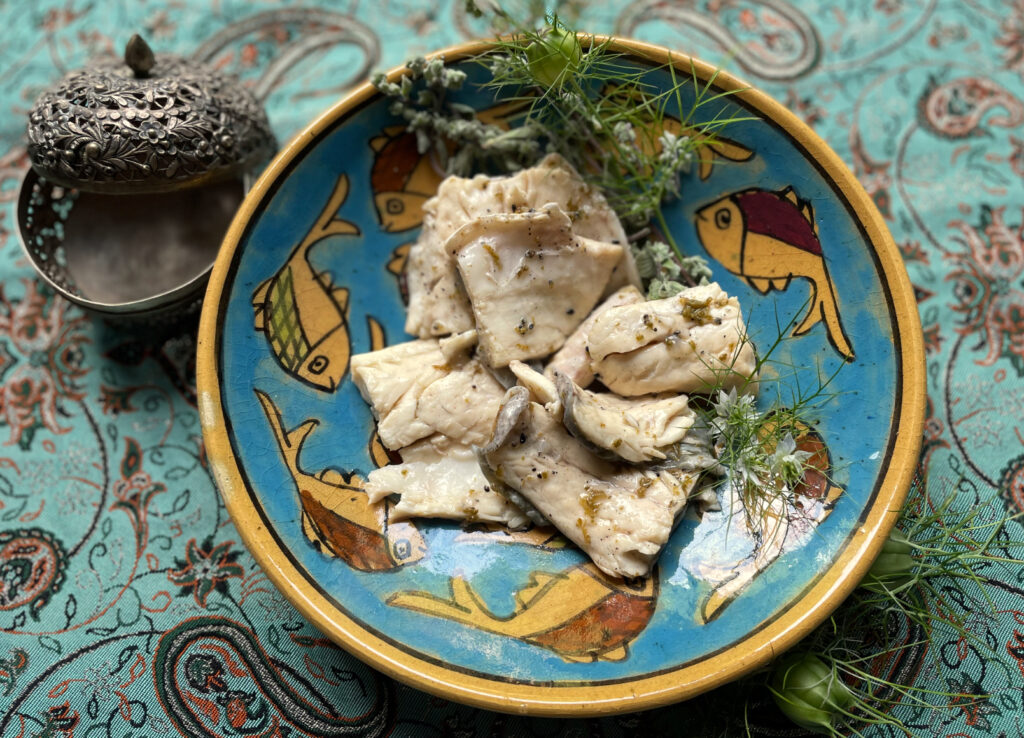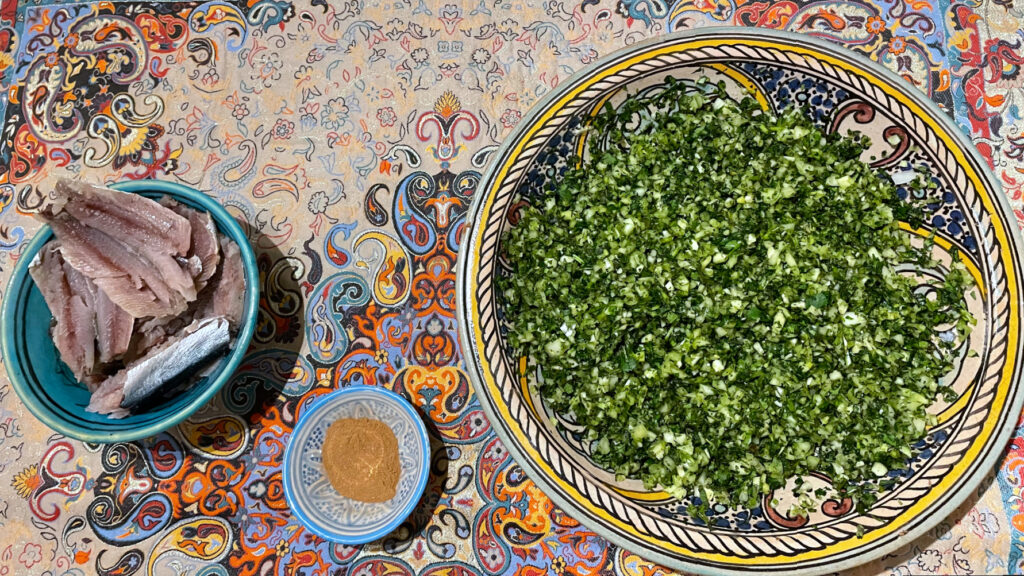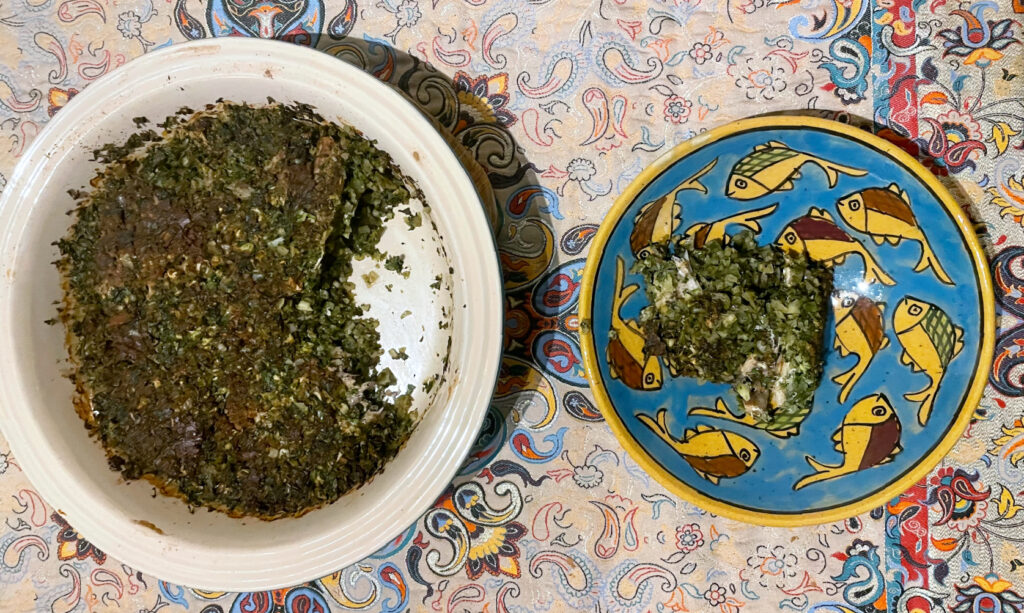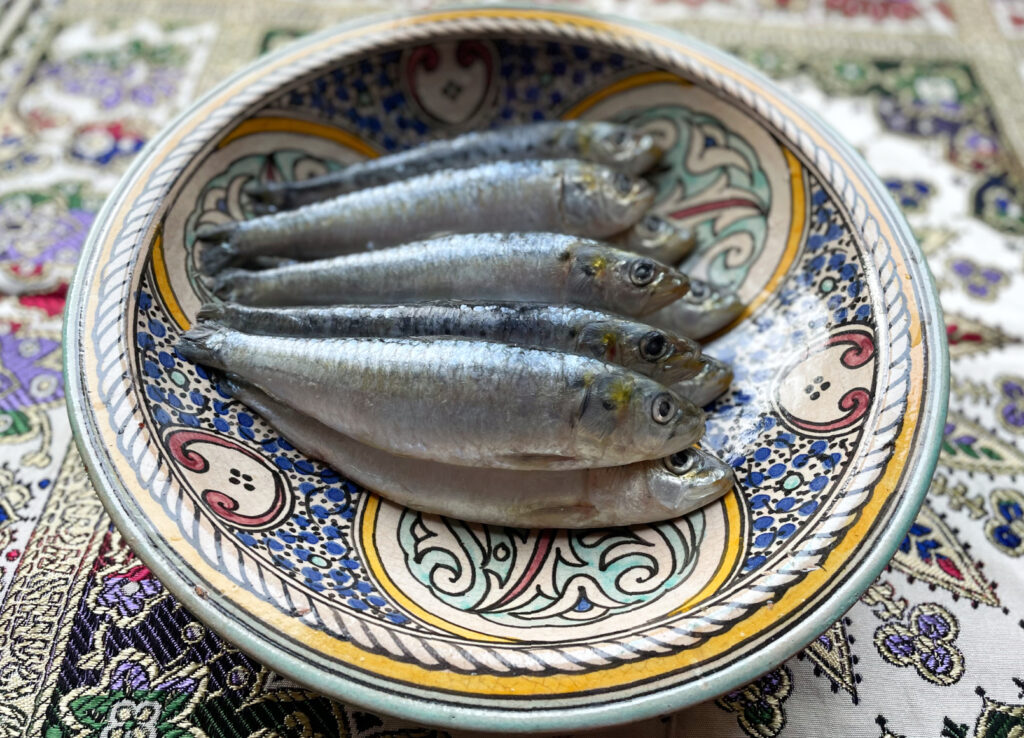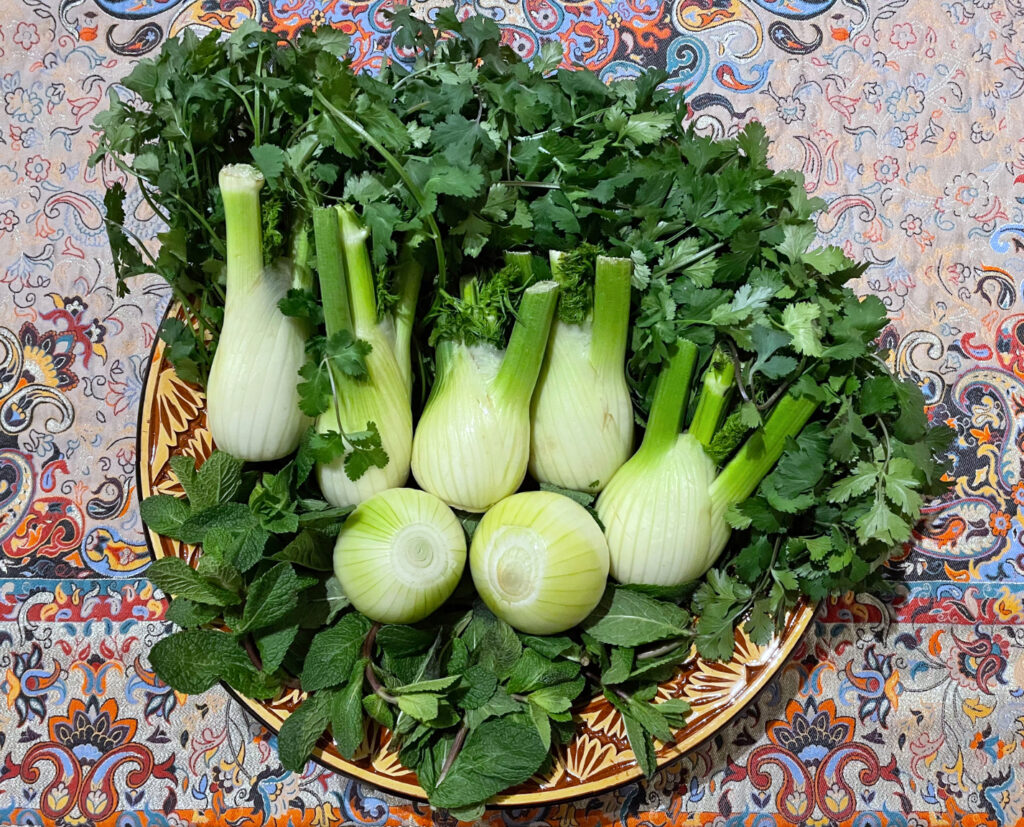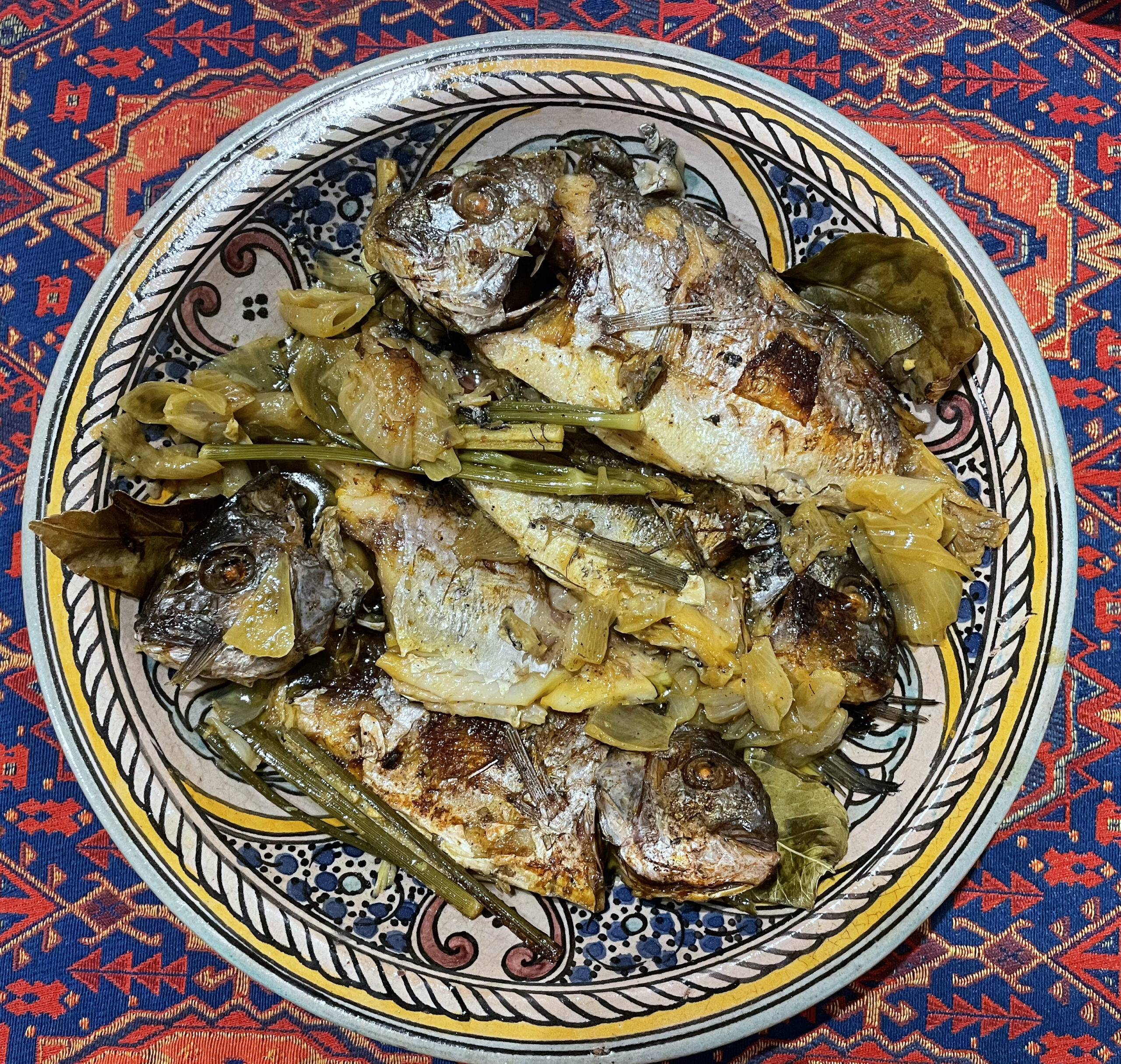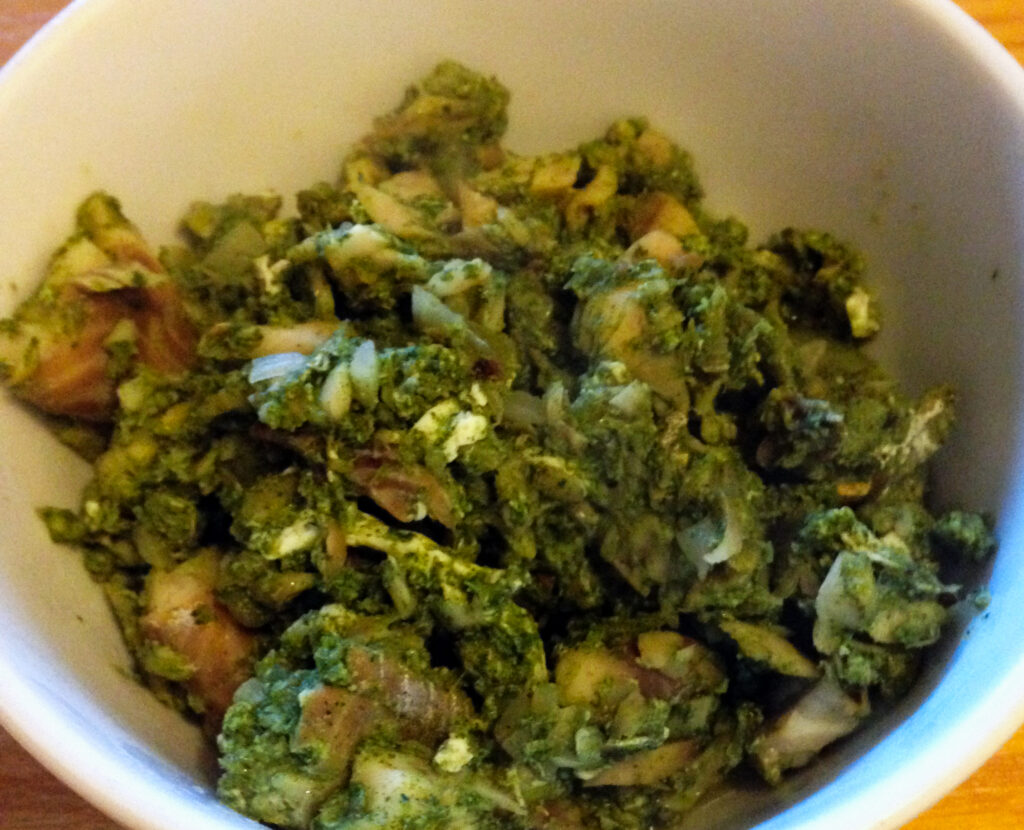A unique recipe from The Exile’s Cookbook and an Andalusian-North African variant of a medieval staple condiment murrī , made with fish rather than the usual barley. One starts with some ṣīr (صير), which denotes small fish — in this case sprats –, which are placed in a jar with salt and oregano, stirred continually, and left to ferment. Then five times the amount of sweet must is poured on and, following further fermentation, the mixture is strained. Then it is decanted and quince and onions added and left. When it is ready, it is stored in a jar and covered with olive oil. The author recommends serving it in a ceramic bowl together with olive oil and cut-up onions; alternatively, one can add fried eggs, fried fish, and olives. And “if you want the murrī to be red in colour, use black grape juice, whereas the white kind is made with white grape juice.” It can also be made with wine but, so we are reassured, “the fermentation of the must will completely cancel out the effect of the wine.” It takes about three months in total to make the final product, but then again all good things in life take time!
This is a close relative of the Greeks’ garos and the Romans’ garum, whilst there are similarities (except for the spicing) with present-day sauces such as the Iranian mahyawa (مهياوه) — a particular favourite in the Gulf –, the Thai prik nam pla, Vietnamese nuoc cham, or Cambodian teuk trei koh kong.
